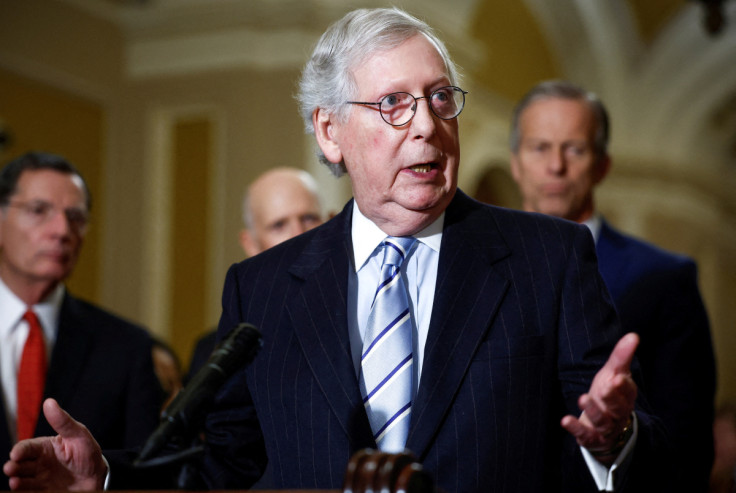
Mitch McConnell, the powerful US political tactician who has advanced conservative causes for years and been a strong defender of aid to Ukraine, announced abruptly Wednesday that he would leave his post as leader of the Republicans in the Senate later this year.
His speech to the chamber came as a surprise and prompted lawmakers from both parties to give him a standing ovation, though he did not say if he was giving up his seat from the state of Kentucky, which he has held since 1985.
"I stand before you today, Mr. President and my colleagues to say this will be my last term as Republican leader," McConnell, 82, said as he signaled the end of his tenure as the longest-serving Senate leader in American history.
McConnell has been the largely unchallenged leader of Republicans in the Senate since 2015 and was in the front line of the party's battles against the policies of Barack Obama from 2009-2017.
He was instrumental in bringing Donald Trump to power in January 2017 as the party underwent dramatic changes, before falling out with Trump over the former president's baseless claims to have won the 2020 election.
In the Senate, McConnell waged a fierce fight to enact a right-wing agenda, notably with the appointment of three Supreme Court justices who led the tribunal to end the federal right to abortion in 2022.
"No Member of Congress has played a greater role in reshaping the federal judiciary than Mitch," Speaker of the House Mike Johnson, a fellow Republican, said, predicting that "his legacy will endure for generations."
For years McConnell relished his self-given monicker as the "Grim Reaper" -- one who doomed the hopes of Democratic lawmakers.
Top Senate Democrat Chuck Schumer acknowledged that rift Wednesday, saying he and McConnell "rarely saw eye to eye."
"But I am very proud that we both came together in the last few years to lead the Senate forward at critical moments when our country needed us," Schumer added, pointing to pandemic-era aid and the certification of Biden's election only hours after the January 6, 2021 assault on the Capitol.
A consummate backroom negotiator with a thick, rumbling southern drawl, McConnell also emerged as one of the most outspoken advocates of US military aid to Ukraine after the Russian invasion.
But he has had to grapple with a fractured, Trump-dominated party that came to shun cooperation and the traditional US leadership role on the international stage.
The isolationist shift was underlined in recent weeks as President Joe Biden's request for $60 billion for Ukraine stalled in Congress as Republicans in the House demanded action first on an immigration crisis at the border with Mexico.
McConnell projected an image of quiet austerity that clashed with his reputation as a tough political operator and strategist.
Under the presidency of Biden, with whom he served in the Senate for years, McConnell also worked for the passage of bipartisan legislation on infrastructure and other issues backed by both parties.
Biden, 81, told reporters Wednesday he was "sorry" to hear his old Senate colleague was stepping down.
"He and I had trust, we had a great relationship, we fought like hell but he never never never misrepresented anything," he said.
Last summer concerns arose about McConnell's health, as several times he froze up while speaking in public and fell awkwardly silent.
In March he was hospitalized after he fell during a dinner and suffered a concussion and a broken rib, forcing him to leave his job for six weeks.
The incident reignited criticism that Congress is dominated by white men in their 70s and 80s who cannot bear to retire.
But McConnell had steadfastly refused to resign and rejected suggestions that he was no longer healthy enough to serve.



